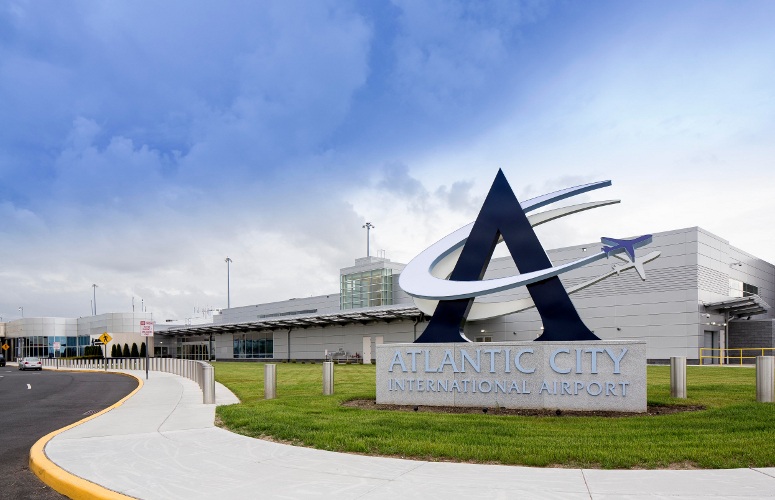
Successes and Struggles in South Jersey
The region was negatively impacted by the pandemic, but economic development projects are afoot.
By George N. Saliba, Contributing Writer On Sep 21, 2021The eight county, 3,700-square-mile region that comprises South Jersey has historically weathered economic uncertainty via its diverse assets ranging from ports and hospital systems to renowned higher education institutions and tourism, but when the coronavirus pandemic struck last year, each of those components was heavily impacted: Hospitals were beset with COVID-19 patients and associated financial costs, higher education institutions were operating under strain, tourism was hampered, and the region’s ports saw drastic supply-side related reductions in cargo, with, for example, total volume at South Jersey Port Corporation dropping from 4.07 million tons in 2019 to precisely 3 million tons in 2020.
Regardless of how one wants to quantify or qualify South Jersey’s overall economy in 2021, there is much positive news: This summer, the Jersey Shore was teeming with beachgoers searching for outdoor and restaurant experiences, Atlantic City’s gaming activity has exceeded that of many previous years, and regional economic development projects have remained in motion. On the latter point, the South Jersey Ports will receive a $9-million grant from the US Department of Transportation to increase its barge capacity and intermodal rail connectivity at the Port of Salem, and, in the healthcare realm, Virtua Health in July announced “transformational renovations” for its Camden-based Virtua Our Lady of Lourdes Hospital, and for its Mount Holly-based Virtua Memorial Hospital. Another hospital system – AtlantiCare – is planning a $75-million expansion of AtlantiCare Regional Medical Center (ARMC) Mainland Campus, in Pomona.
Tourism, Gaming and Atlantic City
While the above is only a sample of economic development projects, the pandemic’s harsh realities and lingering effects cannot be overstated. Atlantic City, for example, lost 21,100 jobs in 2020 relative to 2019, contributing to a 16% regional Atlantic City employment base decline, with profoundly adverse impacts for many residents and businesses alike.
Noting that roughly half of the jobs were tied to Atlantic City’s casino hotels, Oliver D. Cooke, PhD, and associate professor of economics at Stockton University, comments, “That’s a lot of jobs to make up.” He adds, “One of the big questions that is going to loom over the regional economy as we move out into late 2021, early 2022, is: What happens to staff levels at casinos? [Do] they rebound or not?”
In May 2021, Atlantic City’s casino hotels employed a total of 21,993 workers, and since this cannot be compared to May 2020 because the casinos were shuttered at that time due to the pandemic, statistics reveal the casinos had employed 4,457 more workers (a total 26,450 employees) as of February 2020. It’s not entirely an apples-to-apples comparison, however, because official figures for July 2020 to May 2021 include a significant number of individuals on furlough due to COVID-19.
What may possibly fuel an Atlantic City casino hotel employment recovery is revealed via recent gaming statistics: The New Jersey Division of Gaming Enforcement reported June 2021 Gross Gaming Revenue (GGR) of $345.7 million, which surpassed a previous $340.5 million record set in July 2011. While relatively new, internet and sports betting significantly contributed to the increase. Standard brick-and-mortar, in person casino activity also rose in June 2021 at $214.5 million, exceeding activity for five of the past six months of June (2015-2020), with the exception of June 2019, which saw $236 million in brick-and-mortar revenue.
Funneling monies into Atlantic City is casino owner and operator Caesars Entertainment, Inc. (Caesars, Harrah’s Resort and Tropicana Atlantic City), which in April detailed a $400-million master plan investment in Atlantic City. It began this summer via a $170-million renovation of guestrooms and suites at Caesars and Harrah’s. The company says of its wide-ranging master plan: “These developments will bolster [Atlantic City’s] position as a Las Vegas-style destination market with a focus on revitalizing the world-famous Atlantic City Boardwalk.” Meanwhile, a different casino – Borgata Hotel Casino & Spa – opened “a new dining concept” named the American Bar & Grille, in June.
Economic Development
An even larger South Jersey development project includes hope for a rail line traveling from downtown Camden to Glassboro.
While the project has been discussed at least since the early 2000s, it is now tied to recent federal infrastructure legislation (at this time, South Jersey has only one rail line extending from 30th Street Station in Philadelphia to Atlantic City).
“[The Glassboro-Camden rail line] is an economic development project that we are very optimistic about,” Christina M. Renna, president and CEO of the Chamber of Commerce Southern New Jersey, says. “Assuming the federal funding comes through, we are in the final stages – after many years of lobbying and working on this – to get it done. It would just be an explosion for our higher education and medical institutions along that corridor.”
Meanwhile, no discussion of South Jersey’s economic development projects would be complete without mentioning the offshore wind power industry, with, for example, The New Jersey Board of Public Utilities’ (NJBPU) June 30 announcement that it “awarded a combined 2,658 MW of offshore wind capacity to EDF/Shell’s Atlantic Shores Offshore Wind and Ørsted’s Ocean Wind II, bringing the state’s total planned capacity to over 3,700 MW and moving New Jersey closer to Gov. Phil Murphy’s goal of 7,500 MW of offshore wind by 2035 and 100% clean energy by 2050.” Experts have cited the job related and overall economic benefits that this and other highly publicized wind projects are slated to bring to South Jersey.
City of Camden
The City of Camden is likewise eyeing developments: Real estate developer giant Matrix Development is planning a $40-million distribution facility on Admiral Wilson Boulevard. If the project is realized, it could create about 400 jobs.
“Despite the challenging time that [Camden] has had during the pandemic, I think what you are going to see is a more concerted effort to put the renaissance of the city in hyper drive, because I think almost every single person I have talked to … or heard about … wants everything done today, tomorrow – and yesterday,” explains Kris Kolluri, CEO of the Camden Community Partnership. He cites the construction of new buildings, including those for housing and job-creating warehouse spaces, and as well as improving upon the city’s recreational parks, for example.
Broader Trends
As e-commerce surges nationwide and northern New Jersey’s available space for warehousing, logistics and distribution centers becomes increasingly crowded and competitive, Renna describes industrial real estate projects as, “just exploding down here [in South Jersey].”
Aviation and drone development at the famed FAA William J. Hughes Technical Center also benefits the region, and, separately, now that cannabis has been legalized in New Jersey, that industry may also proliferate in South Jersey. “When the time comes and it is stood up further, we are fully expecting cannabis to be very large here in South Jersey, given the agricultural nature of our region,” Renna says.
Emphasizing all of the above dynamics, she explains, “We are really excited at the energy that’s behind a lot of projects that are coming to the region. At the end of the day, South Jersey is perfectly positioned for growth.”
To access more business news, visit NJB News Now.
Related Articles:





